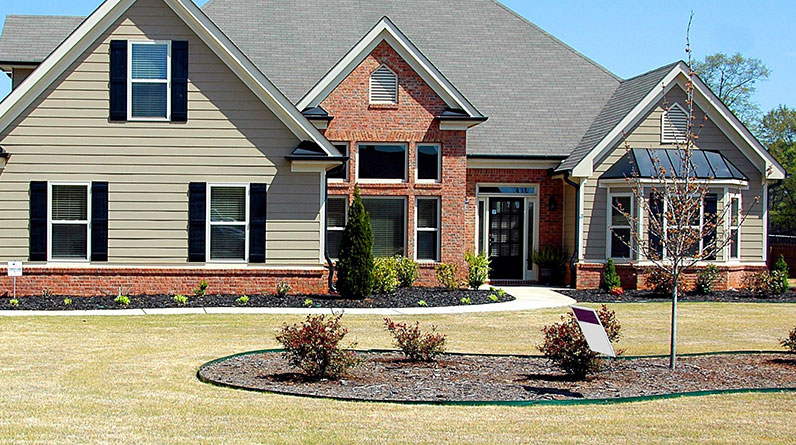
Replacing Windows
Are your home’s windows drafty in the winter and hot as an oven in the summer? If so, you’re not alone. It’s common for older homes to have underperforming windows.
Replacing them can be a big project, but it is almost always worth it. New windows can add value to your home, improve its energy efficiency, and reduce your monthly energy bills. Keep reading to learn more about whether replacing your home’s windows is right for you and what you should consider before making this investment.
How to Know If You Need to Replace Your Windows
There are three main factors to consider when assessing whether your home’s windows could be improved. First, you should consider how well your windows insulate your home.
Windows that don’t effectively insulate your home can be a significant source of energy loss. A poorly insulated window can be responsible for losing up to 50% of the energy that you put into your home. Next, you should consider how well your windows protect your home from the elements.
If your windows don’t shield your home well enough, it can create a significant source of damage. Poorly protected windows can allow water and snow to leak into your home.
Finally, you should consider how easy your windows are to use and clean. If your windows are hard to use, cleaning them can be a significant inconvenience.
How to Measure the Benefits of Replacing Windows
There are three main factors to consider when measuring the benefits of replacing your windows. First, you should consider the cost savings associated with replacing your windows to determine if the project is worth it.
Energy.gov estimates that replacing your windows can save you about $80 per year in energy costs. If your windows are old and inefficient, that $80 annual savings can really add up over time.
Next, you should consider the potential value gained from replacing your windows to determine if the project is worth it. Replacing your windows can add thousnds of dollars in value to your home.
Finally, you should consider the reduction in maintenance required to replace your windows to determine if the project is worth it. Replacing your windows can reduce the amount of maintenance your home needs by up to 50%.
Is Replacing Windows Right for You?
Replacing your windows can be a significant investment, but it is almost always worth it. If you’re on the fence about replacing your windows, there are a few things to keep in mind.
First, you should understand that you can’t easily repair a window. If your windows are failing, they should be replaced.
Second, it’s important to note that you don’t have to replace all of your windows to reap the benefits. Replacing one or two windows can have a significant impact on your home’s energy efficiency.
Finally, most homeowners spend between $350 and $1,000 per window. This can vary widely depending on the type of windows that you select. Remember that a high price doesn’t necessarily mean high-quality windows.
What to Look for When Selecting a Window Vendor
There are a few things to keep in mind when selecting a window vendor to install new windows in your home. First, you should look for a reputable window vendor. Poorly installed windows can create many problems. You can usually find reputable vendors by checking your community’s BBB record or by reading reviews from other homeowners.
Next, you should look for a window vendor that offers a wide range of products. This way, you can find a product that suits your specific needs. A vendor with a wide product range can also help you select the best windows for your home.
Finally, you should look for a window vendor that provides a fair price. You don’t want to get ripped off, but you also don’t want to pay more than you have to.
3 Options for Installing New Windows
There are three main options for installing new windows. First, you can hire contractors to install the windows for you. Contractors usually charge a flat fee per window. This can be a good option if you want your windows installed quickly.
Second, you can do the work yourself with the help of a do-it-yourself (DIY) window installation kit. DIY window installation kits cost about $50 per window. This can be a good option if you want to save money on installation costs and learn something new.
Finally, you can use an online marketplace to order replacement windows. You can choose from a wide range of products, like styles, colors, and price points. This can be a good option if you want to get a custom product for a low price.
2 Big Mistakes to Avoid When Installing New Windows
There are two mistakes that homeowners often make when installing new windows. First, you should avoid hiring contractors who don’t have experience installing the specific windows you’ve selected. Windows come in all shapes and sizes, and installing the wrong windows can create problems. Make sure the contractors you hire are qualified to install the windows that you select.
Second, you should avoid purchasing the cheapest windows on the market. Cheap windows can break more easily than more expensive windows, and they often don’t last as long. Make sure you select high-quality windows that will last for decades.
Conclusion
Your windows make up between 10% and 40% of your home’s heat loss, so they are a critical part of the insulation in your home. If your current windows are falling apart or are inefficient, or you just want to upgrade them to something more modern, you have a few options. You can hire a contractor to install new windows for you, do the work yourself with a DIY window installation kit, or order windows online to get a custom product for a low price.

